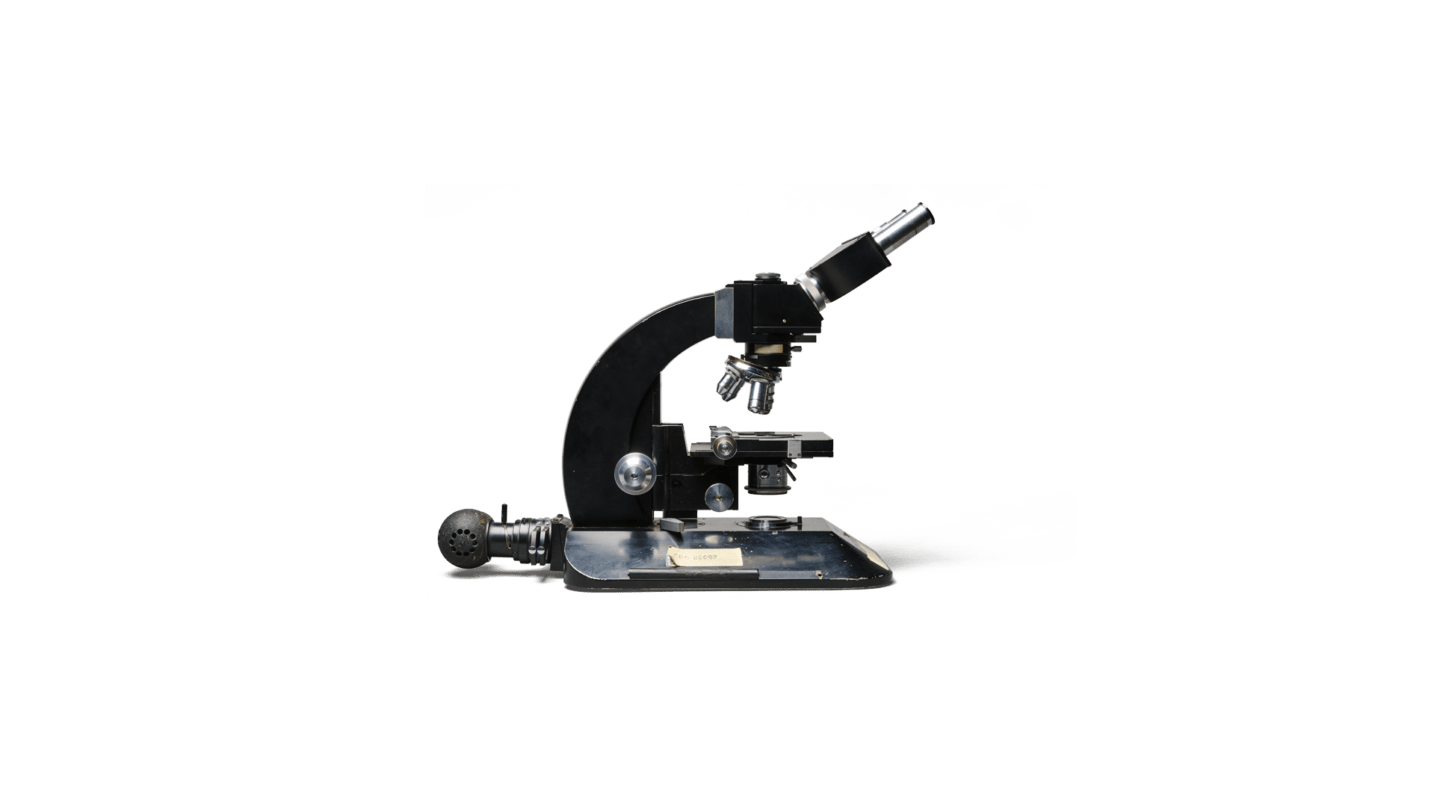
Reichert Zetopan microscope used by Dr. Charles Shepard at CDC, circa 1953. Courtesy of CDC
A microbiologist, Dr. Charles C. Shepard used this microscope during his work at the Centers for Disease Control and Prevention (CDC) in Atlanta. The federal agency is responsible for both national and international public health initiatives. Headquartered adjacent to the campus of Emory University, CDC is integral to the history of 20th-century Atlanta.
Shepard was director of CDC’s laboratory division and served as chief of their Leprosy and Rickettsia Branch for more than 30 years. A pioneering scientist, Dr. Shepard is perhaps best known for his role on the team that identified Legionella pneumonia, the bacteria that causes Legionnaires Disease, in 1977. He further revolutionized the field of leprosy research by developing a technique to grow leprosy bacilli in lab mice. Since 1986, CDC has presented the annual Charles C. Shepard Science Award. The award is presented for lifetime achievement and also to authors in four categories of the most outstanding peer-reviewed scholarly research paper published by CDC or the Agency for Toxic Substances and Disease Registry.
Learn more about CDC’s creation and Atlanta’s impact on global health on our website. Explore the 49 other objects that make our city unique by visiting our online exhibition, Atlanta in 50 Objects.